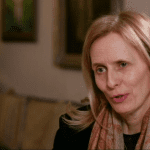For some in the Jewish community, the defeat of the Labour Party in the UK General Election will look like a ‘job well done’ in tackling antisemitism in this country. But as we enter the ‘Age of Boris’, the opposite feels a more accurate conclusion to draw. Let me explain my increasing exasperation at how antisemitism is being understood and addressed.
Crushing antisemites
In general, it’s best not to over-claim your successes in the fight against antisemitism. But perhaps modesty was too much to expect from the Campaign Against Antisemitism (CAA), an organisation which led the assault on Corbyn’s integrity over the last four years.
The intoxicated headline for the CAA’s post-election statement was “British Public resoundingly decides to stand with its Jewish community and crush antisemites”
I have no doubt that CAA can claim some credit for the distrust and even hostility which many voters felt towards Jeremy Corbyn. However, as political slogans go, I suspect ‘Enough is Enough’ was rather less decisive in the new Parliamentary arithmetic than ‘Get Brexit Done’.
Meanwhile, I’m not clear what the CAA now thinks of its 10 million fellow British citizens that did vote Labour, including 56% of voters aged 18-24. Are they all to be branded ‘would be enablers of antisemitism’? And was antisemitism the only form of racism and prejudice that mattered in the election? Did CAA ever check out Boris Johnson’s well documented track record? Or the record of the last ten years of Conservative governments?
Even the focus on “crushing antisemites” reveals a poor understanding of how antisemitism manifests itself in British society. We need to get much better at understanding antisemitic sentiments and behaviour across contrasting social and political settings. Typically, individuals hold both positive and negative views about Jews in Britain. Antisemitism is an elastic concept according to the Institute for Jewish Policy Research. Accusing, counting, and then “crushing” antismites, is to misconceive the problem, as expert on antisemitism David Feldman, explained recently.
Rather than conceive anti-Semitism as a virus, we will do better to think of it as a deep reservoir of stereotypes and narratives, one which is replenished over time and that can be dipped into with ease.
Spoon bending
Not everyone is willing to take a dispassionate and academic approach though. Some prefer to try magic to tackle antisemitism.
Uri Geller (Israel’s favourite spoon bending export) had already decided that the best way to defeat the threat facing British Jews was to use the potency of the paranormal. Geller’s weapon of choice was a spoon which had belonged to Israel’s fourth prime minister, Golda Meir.
“I had energised this spoon with positive energy, as part of my strategy, along with the mind power of the UK public, to ensure that Jeremy Corbyn did NOT end up as Prime Minister! This is no joke, this is real! My energy and the energy of the people of the UK ensured Boris Johnson’s landslide victory, and kept Jeremy away from No.10!”
Of course, it’s impossible to prove the spoon bending did not work. If only we knew for sure. Think of the time and effort that that could have been saved by CAA, the Board of Deputies, Jewish Leadership Council, Chief Rabbi Mirvis and the Jewish Chronicle if they’d just clubbed together and hired Geller for the night.
On the other hand, Uri Geller had also promised to stop Brexit using telepathy earlier this year. But that’s clearly not working out so well.
God on your side
But who needs spoon bending to stop antisemitism when you have God on your side?
The rabbinic leader of the UK’s Sephardi community, Rabbi Joseph Dweck, had his own take on the outcome of the election, telling the Jerusalem Post: “I believe that it was a divinely inspired result”.
Was the rabbi being ‘tongue in cheek’ when he said this? I sincerely hope so. Otherwise it begs too many painful questions about God’s lacklustre performance in Jewish affairs. Personally, I find it difficult to believe that the Almighty was at work in Blyth Valley but not at Buchenwald.
Disappearing racism
Most of us would like to see racism, including antisemitism, disappear. Columnist Melanie Phillips turns out to have a novel way to reduce hatred in the world, as long as it’s hatred against Muslims. Although her thinking is less altruistic than it first sounds.
Writing in the Jewish Chronicle this week, Phillips told us she didn’t believe in the existence of Islamophobia. In fact, she thinks Islamophobia was invented as a means to disguise Muslim (and especially Palestinian Muslim) antisemitism which it disguises in the form of anti-Israel rhetoric.
“Islamophobia” was invented by the Muslim Brotherhood to mimic antisemitism, the concept which these Islamists falsely believe immunises Jews from criticism — itself an antisemitic belief…Islamophobia is not equivalent to antisemitism. It facilitates it.
In other words, not only is Islamophobia made up, its invention serves only to create more of the real hatred that matters in the world – hatred against Jews.
We should have seen this coming. After all, Islamophobia isn’t the only thing Melanie Phillips denies. She also denies Palestinians have any indigenous rights in Israel/Palestine. And if this wasn’t already enough denial for one well paid commentator to be peddling, Melanie has more to offer. Writing as recently as September 2019, she summed up the environmental crisis with this pithy description: “the whole climate change hypothesis is a mad, nightmarish cult”
Will climate change denial one day be treated in the same way as Holocaust denial? And will those who promote such thinking become pariahs? I suspect so. Meanwhile, we really have to ask why Melanie Phillips is still considered an acceptable voice on the BBC where she regularly appears. And is her commentary on antisemitism doing Jews any favours whatsoever?
Selective outrage
The Board of Deputies was keen to condemn Phillips in order to demonstrate its solidarity with the Muslim community. And in its statement following the Election, the Board struck a statesman-like tone, mimicking Johnson’s own words of “healing” the nation:
“We hope that the Prime Minister will use his new mandate to bring the country together, and put an end to the toxicity and prejudice which has become too regular a feature of our politics. We look forward to working with the Government to ensure that our country strives to be a beacon of inclusion and respect for all its inhabitants.”
But while the Board may be getting better at understanding Islamophobia and other prejudices, sometimes it still struggles to spot antisemitism – at least when Israeli politics gets in the way.
This week the Board quite rightly tweeted its concern and solidarity with Jewish communities in the States under attack from antisemitism:
“We are deeply concerned about the vicious vandalism which has taken place at a synagogue in Beverly Hills, which police are treating as a possible hate crime. After the recent uptick in antisemitic violence in the US, our hearts are with the American Jewish community.”
There’s no reason why the Board should not comment on the situation facing Jews abroad. But why stay silent when just a few hours earlier the President of the United States had gone full-on antisemitic at a fundraising dinner in Florida. As Vanity Fair reported, Donald Trump: “hit all of his favorite anti-Semitic tropes before a room full of Jewish people”.
But then again, the Board has given the same ‘free-pass’ to Boris Johnson, making no comment on his portrayal of Jews (and other minority groups) in his novel ’Seventy Two Virgins’ published in 2004.
Like Trump, Boris Johnson is no threat to the image of the State of Israel. He certainly won’t be holding it to account in the way a Labour government would have done. So Boris is a ‘friend to the Jewish community’ not because he rejects antisemitism but because he shares the Jewish establishment’s double standards on Israel.
The longer this goes on, the more difficult it will be to explain or educate a wider public about what antisemitism really means. Moral schizophrenia will eventually undermine our security, not enhance it.
BDS the (phony) battleground
The Boycott Divestment Sanctions (BDS) movement is the global campaign in support of Palestinian rights in Israel/Palestine. But it’s also been made into the frontline in the war against antisemitism thanks to Israel’s Ministry of Strategic Affairs, which has relentlessly promoted the idea around the world that criticism of Israel and hostility towards Jews are one in the same.
At the beginning of December, the Union of Jewish Students at its conference in Leeds approved a motion “opposing BDS in all its forms”. It also committed its support to the “IHRA definition of antisemitism and all of its examples”.
But there was no need for these policies. In fact, they will prove to be entirely counter-productive. If the Union of Jewish Students is serious about working with Muslim students on campus and “committing to tackling Antisemitism and Islamophobia together” then why champion IHRA and BDS which are already creating barriers to that collaboration? These attempts to create politicised definitions which are then used to undermine and deny the history and human rights of another people will divide Jewish and Muslim students not bring them together.
This war against a non-violent campaign in support of Palestinian rights came to the House of Commons at the end of the week as Boris Johnson’s new government set out its legislative programme.
“We will stop public institutions from imposing their own approach or views about international relations, through preventing boycotts, divestment or sanctions campaigns against foreign countries and those who trade with them.”
Although Israel was not mentioned by name, it was clear what this was all about.
The government argues that the new law, which will apply to local councils, will:
“create a coherent approach to foreign relations from all public institutions, by ensuring that they do not go beyond the UK Government’s settled policy towards a foreign country”.
This might feel acceptable if you’re reassured by this passage in the Queen’s speech in parliament:
“[the UK government] will stand firm against those who threaten the values of the United Kingdom, including by developing a sanctions regime to directly address human rights abuse”
Except, we all know that UK foreign policy under Boris Johnson will not be addressing one of the world’s longest standing human rights abuses: the theft and occupation of Palestinian land and the creation of an apartheid regime in the Occupied Territories. There will be no sanctions against Israel by the UK anytime soon. And not imposing sanctions or holding Israel to account now appears to be the primary way in which governments think they are doing a good job tackling antisemitism. The move was warmly welcomed by the Board of Deputies.
Antisemitism in the Age of Boris
Antisemitism is on the increase around the world, as is discrimination and intolerance towards other minority groups. Triumphalism won’t help us to deal with this. And neither should we rely on magic or divine intervention. But the longer it takes to disentangle Jews and Judaism from the politics of Israel and Zionism, the harder it’s going to become.
In the Age of Trump, and now in the Age of Boris too, tackling antisemitism has become little more than defending Israel and Zionism from proper scrutiny and legitimate protest. It’s an approach which conflicts with the anti-colonial and human rights agenda which underpins the foundations of everyone else’ anti-racist thinking and strategising. Jewish institutions, rabbis, and Jewish student leaders are claiming to fight antisemitism while simultaneously defending, excusing, or denying the discrimination and oppression of another people.
Ultimately, it’s a narrative framework that’s not sustainable. The weight of internal contradictions will eventually collapse the structure. For a younger generation of Jews outside of Israel, that’s already happened. Everyone else needs to catch up fast.
















